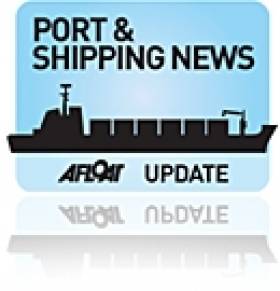Displaying items by tag: CFL Prospect
Salt Shipments Bound for Cork
In total the National Roads Authority (NRA) will have 25,000 tonnes of salt available during the Christmas week, with 3,000 tonnes distributed to authorities on a daily basis. As a priority the salt will be used to grit the national primary network.
The second bout of artic conditions that has gripped the country with temperatures plummeting to -17 degrees in the west and -15 degrees is forecast tonight in the north-west. Further snowfalls are also due in various regions tonight and with sub-zero temperatures expected to last up to St. Stephens Day. As such the demand for salt supplies has soared resulting in shipments sourced from overseas countries to include Turkey and Egypt.
CFL Prospect (see video-clip here) is owned by the Dutch shipping company, Kees Koolhof which since 2006 has built up a fleet of modern vessels to trade in the short-sea sector. The 2007 built vessel is one of nine Jumbo 6500s from a series completed by the Peters Shipyard at Krampen.
For the latest NRA's road weather stations logon here in addition to weather forecasts from www.met.ie
























































